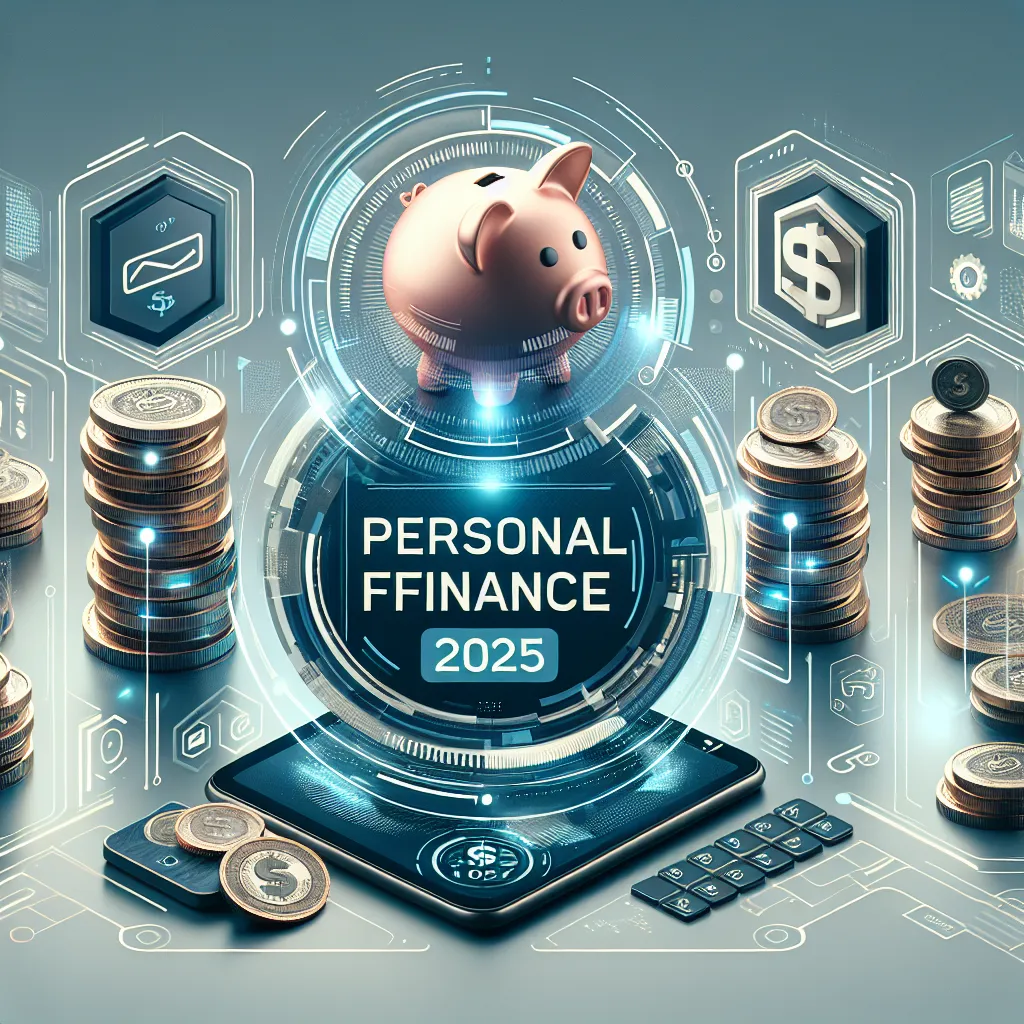Navigating your finances in the digital age can be a challenge, but it also presents more opportunities than ever before. As we move into 2025, smart money management isn’t just about sticking to a budget—it's about leveraging technology and digital tools to make smarter financial decisions. Whether you’re looking to save more, invest wisely, or streamline your expenses, adopting modern personal finance strategies can set you on the path to financial freedom.
In this comprehensive guide, we’ll explore the best personal finance tips for 2025, focusing on the latest apps, digital solutions, and practical methods to help you make the most of your money. Get ready to transform your financial habits and embrace a future of financial wellness!
Why Smart Money Management Matters in 2025
The financial landscape is evolving rapidly. From AI-powered budgeting tools to cryptocurrency investments, the way we handle money is constantly being reshaped by technology. Smart money management is more crucial than ever—not just to keep up, but to get ahead.
“Financial freedom is available to those who learn about it and work for it.” – Robert Kiyosaki
Top Personal Finance Tips for 2025
1. Leverage Technology for Budgeting and Expense Tracking
Traditional spreadsheets are giving way to intuitive digital tools that make budgeting effortless. In 2025, the best way to keep tabs on your money is by harnessing the power of technology.
Tip: Choose budgeting apps that sync with your bank accounts and provide real-time insights.
- Automated Budgeting Apps: Tools like YNAB (You Need a Budget), Mint, and PocketGuard categorize your spending and help you set achievable goals.
- Expense Trackers: Use apps that automatically track subscriptions and recurring payments to avoid unwanted charges.
- AI-Powered Analytics: Some platforms now offer AI-driven insights, alerting you to unusual spending patterns or suggesting savings opportunities.
2. Automate Your Savings
Saving money consistently is easier when you take the human element out of the equation. Automatic transfers ensure you pay yourself first—no excuses.
- Set up recurring transfers to a separate savings account.
- Use round-up features offered by banks and fintech apps to save spare change from every transaction.
- Explore high-yield online savings accounts for better interest rates.
Tip: Schedule your automatic transfers right after payday to avoid the temptation to spend.
3. Make Smart Use of Financial Dashboards
Financial dashboards give you a bird’s-eye view of all your accounts, investments, debts, and expenses in one place.
- Connect checking, savings, credit cards, and investment accounts.
- Monitor net worth and track progress toward goals.
- Set up alerts for low balances, large transactions, or bill due dates.
Tip: Use platforms like Personal Capital or Empower for comprehensive financial views and retirement planning.
4. Invest with Digital Platforms
Digital investing is more accessible than ever. You don’t need to be a Wall Street expert to grow your wealth.
- Robo-Advisors: Services like Betterment and Wealthfront use algorithms to build and manage a diversified investment portfolio for you.
- Micro-Investing: Start investing with as little as $5 using apps like Acorns or Stash.
- Cryptocurrency Platforms: If you’re crypto-curious, research platforms with robust security and educational resources.
Tip: Always do your research before investing, and never invest money you can’t afford to lose.
5. Prioritize Financial Security and Data Privacy
With digital convenience comes the responsibility to protect your financial data. Cybersecurity is a crucial part of modern money management.
- Use strong, unique passwords and enable two-factor authentication on all financial accounts.
- Regularly update your apps and devices to patch security vulnerabilities.
- Avoid public Wi-Fi when accessing sensitive financial information.
Tip: Consider using a password manager to keep your credentials secure and organized.
Step-by-Step Guide to Creating a Digital-First Financial Plan
- Assess Your Current Financial Situation:
- List all income sources, expenses, debts, and assets using a financial dashboard.
- Set Clear, Measurable Goals:
- Use goal-setting features in budgeting apps to track progress on savings, debt repayment, or investments.
- Choose the Right Tools:
- Research and select apps that align with your personal finance needs.
- Automate and Monitor:
- Automate savings, bill payments, and investment contributions. Set up alerts for irregular activity.
- Review and Adjust:
- Schedule monthly reviews to analyze spending patterns and adjust your plan as needed.
Digital Tools Every Smart Money Manager Should Try
- Budgeting & Expense Tracking: YNAB, Mint, Goodbudget
- Investment Management: Robinhood, Wealthfront, Betterment
- Net Worth Tracking: Empower, Personal Capital
- Bill Management: Prism, Truebill
- Credit Monitoring: Credit Karma, Experian
- Security: LastPass, 1Password, Authy
Tip: Try a few different apps to find the combination that works best for your lifestyle and goals.
Habits for Long-Term Financial Success
While digital tools make money management easier, your habits ultimately determine your financial success. Here are some powerful habits to cultivate:
- Review your finances weekly—set aside time to check your apps and dashboards.
- Regularly update your goals as your circumstances or priorities change.
- Educate yourself—follow reputable financial blogs, podcasts, and newsletters.
- Practice mindful spending—pause and reflect before making non-essential purchases.
- Build an emergency fund of at least 3-6 months’ expenses.
“Do not save what is left after spending, but spend what is left after saving.” – Warren Buffett
Frequently Asked Questions (FAQs)
What is the best budgeting app for 2025?
The best budgeting app depends on your unique needs. YNAB is highly rated for its proactive approach, while Mint is excellent for beginners seeking automation. Try a few options to find your perfect fit.
How can I automate my savings with technology?
Most digital banks and fintech apps allow you to schedule recurring transfers, set up round-up savings, and even allocate a percentage of each paycheck into savings automatically.
Are robo-advisors safe for investing?
Reputable robo-advisors are regulated and use sophisticated algorithms to manage your investments. Always check for regulatory compliance and read reviews before choosing a platform.
How do I protect my financial data online?
Use strong passwords, enable two-factor authentication, keep your devices updated, and avoid sharing sensitive information over public networks. A password manager can help keep your credentials secure.
What’s the most important habit for smart money management?
Consistency. Regularly reviewing your finances, sticking to your plan, and adjusting as needed are key to long-term financial health.
Conclusion: Embrace Technology for Financial Wellness
As 2025 unfolds, smart money management is within reach for anyone willing to harness the power of technology. With a combination of digital tools, automation, and proactive habits, you can take control of your finances and build a more secure future.
Remember, the journey to financial wellness is a marathon, not a sprint. Start with small changes, use the right digital resources, and stay committed to your goals. The smarter you manage your money today, the brighter your tomorrow will be!


